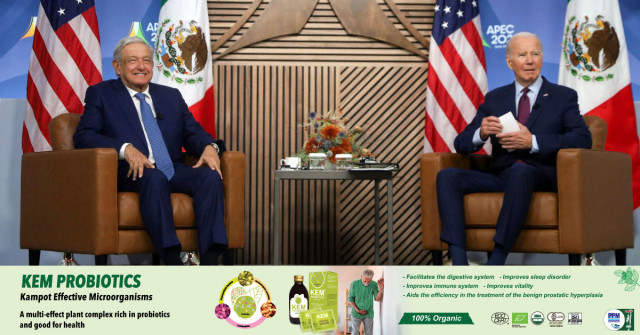Time to Ban the Dog and Cat Meat Trade

- By Sonny Inbaraj Krishnan
- April 3, 2024 4:20 PM
The world celebrates World Stray Animals Day on April 4, aiming to raise awareness about the challenges faced by stray animals worldwide.
In 2010, the Dutch National Stray Animals Conference brought together over 100 Dutch groups and founded World Stray Animals Day. It falls on April 4, exactly six months after World Animal Day on October 4. "Stray" animals are generally considered to be pets that have been abandoned or lost, as opposed to domestic species that are born in the wild and classified as "feral" animals.
World Stray Animals Day is an important occasion to shed light on the distressing trade involving dogs and cats for meat. Every year, an estimated 30 million dogs and cats are trafficked for the meat trade in Asia, particularly in China, Vietnam, Indonesia, Cambodia, Lao PDR, and South Korea, according to the international animal welfare organization Four Paws.
In most countries, apart from South Korea, where dogs are primarily farmed, the demand is met by collecting dogs from the streets and even stealing people's pets.
The cruel trade in dog and cat meat is based on the horrible belief that torturing these animals and making them suffer makes their flesh taste better. The heartbreaking reality that these defenceless creatures have to undergo is still hidden. Dog catchers use poison to trap dogs when they are resting on streets or beaches. The capture of dogs is a horrifying process that involves taping their muzzles, tying them up, and then placing them into bags so that they may be hauled away. Before being either clubbed or strangled to death, these dogs suffer for more than twenty-four hours.
Original beliefs about widespread dog and cat meat consumption in Asia might be overblown. Extensive investigations by animal welfare organizations like Four Paws and other groups reveal a different picture. In China, for instance, less than 20% of the population eats dog meat. Similar trends hold in Cambodia and Indonesia, where dog meat consumption is uncommon. Even within Vietnam, surveys show a clear divide. Only 11% in Hanoi and a mere 1.5% in Ho Chi Minh City regularly eat dog meat.
These statistics suggest a potential win-win. A ban on the dog and cat meat trade could benefit the majority of the population while impacting only a small minority.
There seems to be light at the end of the tunnel but more can certainly be done by governments.
South Korea ushered in a new era of animal welfare with a law unanimously passed by its parliament at the beginning of the year. This legislation prohibits the breeding, sale, and slaughter of dogs for food, effectively phasing out the long-standing practice of dog meat consumption by 2027.
Earlier this year, the governor of Bali in Indonesia took a firm stance against the dog meat trade. The new law, Bali Regulation No. 5 of 2023, prohibits the purchase, sale and distribution of dog meat. The main focus of this law is to promote public order, peace, and animal welfare. Anyone found violating this local regulation may face imprisonment or a hefty fine of Rp. 50 million ($3,150). For years, the Bali Animal Welfare Association and other groups have been working relentlessly to advocate for a ban on this inhumane trade to protect the dogs of Bali. This new regulation is a much-needed step in sending a clear message that such barbaric behavior will no longer be tolerated.
Bali’s ban on the dog meat trade follows an increasing trend throughout Indonesia. The dog meat trade has been outlawed in several regions, including Karanganyar in Central Java, Medan, and Jakarta.
Following the exposure in 2020 by Four Paws of the distressing reality of approximately three million dogs being killed for meat annually in Cambodia, the Siem Reap Provincial Department of Agriculture, Forestries and Fisheries took action by issuing a directive that prohibits the slaughter and trade of dogs for meat within the province. Dealing in dogs for slaughter as food can now result in a maximum penalty of five years in prison, with fines ranging from $1,700 to $12,200.
Animal welfare organizations have been successful in bringing attention to the cruelty of the dog meat trade. However, some people see the ban on the trade as a hasty response. The real issue here is the lack of comprehensive national legislation, which creates a dangerous gap. This illegal trade thrives on a shadowy supply chain of animals with unknown origins, which puts human health at risk. There is a high possibility of zoonotic illnesses being transferred to people from dogs in the trade through contaminated saliva, aerosols, urine, feces, or direct touch.
Consuming dog meat poses the following risks to humans:
Bacterial Contamination: Consuming dog meat can significantly increase the risk of contracting bacterial illnesses. This is because dog meat can harbour harmful bacteria like E. coli, Salmonella, and even the bacteria that cause cholera.
Parasitic Infections: Trichinellosis, a parasitic infection spread through contaminated meat, can be transmitted from dogs to humans. This parasite causes inflammation in blood vessels leading to hemorrhaging and severe muscle weakness, potentially leading to death.
Viral Transmission: The dog meat trade can contribute to the spread of rabies, a deadly viral disease. This is especially true if the meat comes from unvaccinated or infected animals.
In Cambodia, rabies poses a serious threat, with dog-transmitted rabies estimated to claim roughly 800 lives annually. Stopping this deadly virus requires achieving herd immunity, where at least 70% of the dog population is vaccinated.
The dog meat trade is hampering efforts to eradicate rabies through canine vaccination programs. This is because taking a significant number of dogs, including vaccinated ones, from communities makes it challenging to achieve the critical 70% herd immunity threshold. Therefore, the dog meat trade constitutes a significant obstacle to a country's goal of eradicating rabies. To achieve Zero Rabies by 2030, it's crucial to impose a nationwide ban on this illegal trade.
Sonny Inbaraj Krishnan is Strategic Communications Lead at the Bali Animal Welfare Association.















